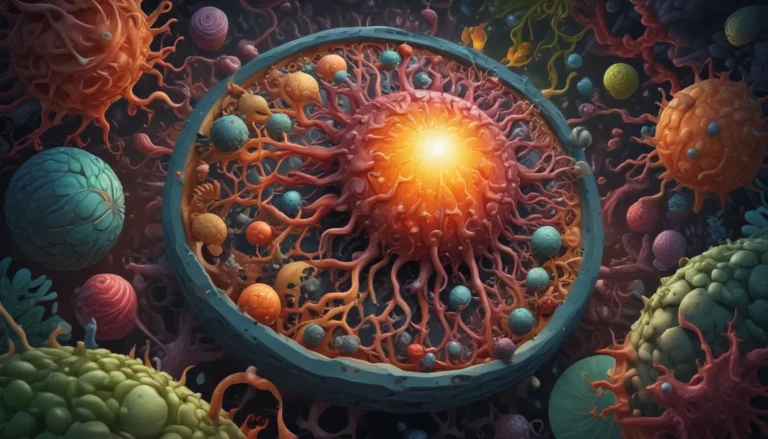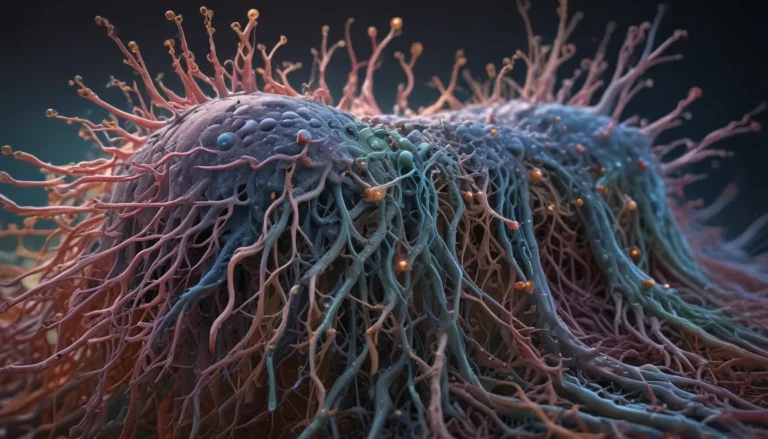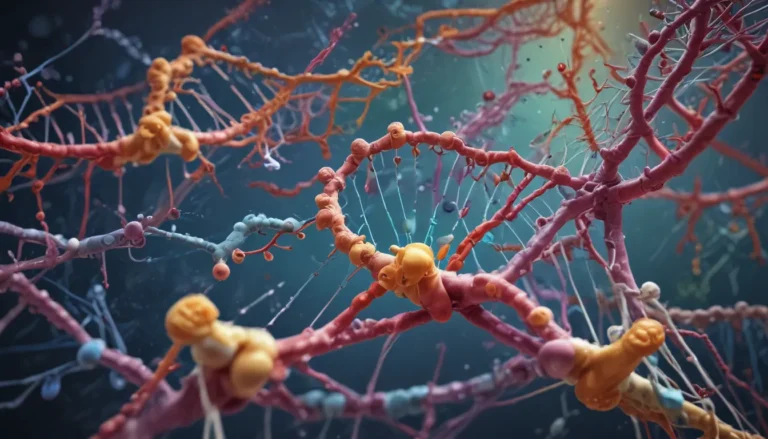A Note About Images: The images used in our articles are for illustration purposes only and may not exactly match the content. They are meant to engage readers, but the text should be relied upon for accurate information.
Epigenetic reprogramming, a mesmerizing realm within the field of biology, has captured the attention of researchers and enthusiasts alike in recent years. This intricate process involves the modulation of gene expression without altering the underlying DNA sequence, playing a pivotal role in a myriad of biological phenomena, including development, cellular differentiation, and responses to environmental stimuli.
The Intriguing World of Epigenetic Reprogramming
Epigenetics, a captivating field of study, delves into how external factors influence gene expression without changing the DNA sequence at its core. This hidden regulator governs which genes are activated or suppressed in our cells, ultimately shaping our development and overall health.
Unveiling the Power of DNA Methylation
At the heart of epigenetic regulation lies DNA methylation, a critical player in this intricate mechanism. The addition of a methyl group to the DNA molecule can silence gene expression, playing a pivotal role in normal development and contributing to various diseases, including cancer.
The Astonishing Process of Epigenetic Reprogramming
Epigenetic reprogramming serves as a reset button during early embryonic development, facilitating the erasure and reprogramming of epigenetic marks. This process allows the newly formed embryo to differentiate into various cell types with distinct functions, laying the foundation for complex organisms to emerge.
Harnessing the Potential of Pluripotent Stem Cells
Epigenetic reprogramming gives rise to pluripotent stem cells, possessing the remarkable ability to transform into any cell type within the body. These cells hold immense promise for regenerative medicine and offer hope for the treatment of a plethora of diseases.
Environmental Factors and Their Impact on Epigenetic Marks
Our lifestyle choices, including diet, stress levels, and exposure to toxins, can leave enduring imprints on our epigenome. These modifications may transcend generations, potentially influencing the health and well-being of our descendants.
The Role of Epigenetics in Personalized Medicine
Epigenetic modifications serve as valuable biomarkers for various diseases, paving the way for personalized medicine approaches tailored to individual epigenetic profiles. This strategy allows healthcare professionals to optimize treatments for maximal effectiveness.
Exploring Transgenerational Inheritance of Epigenetic Marks
Certain epigenetic marks can be passed down through multiple generations, showcasing a fascinating interplay between genetics and the environment. This phenomenon opens new avenues for understanding hereditary traits and diseases.
The Influence of Lifestyle Choices on Epigenetic Landscapes
Everyday decisions, such as exercise routines, sleep patterns, and social interactions, can impact our epigenome. Adopting a healthy lifestyle can positively influence gene expression, potentially mitigating the risk of certain diseases.
Epigenetic Clocks: Decoding Biological Age
Researchers have devised epigenetic clocks that estimate an individual’s biological age based on their epigenetic profile. These clocks offer valuable insights into the aging process, aiding in the identification of individuals at higher risk for age-related ailments.
Unraveling Epigenetic Therapy
The realm of epigenetic therapy involves the development of drugs targeting abnormal epigenetic marks associated with diseases like cancer. These therapies aim to restore normal gene expression and impede disease progression, holding promise for innovative treatment approaches.
The Role of DNA Demethylation in Gene Expression
Demethylation of specific DNA regions plays a pivotal role in activating gene expression, enabling precise control over gene activity during development and cellular differentiation.
The Concept of Epigenetic Memory
Epigenetic marks serve as a form of cellular memory, preserving the identity and function of diverse cell types. This memory is crucial for maintaining tissue integrity and ensuring proper physiological functioning.
Epigenetic Modulations and Neurodevelopment
Epigenetic alterations play a vital role in neurodevelopment and the intricate formation of neural networks. Disruptions in these processes can contribute to neurodevelopmental disorders such as autism and schizophrenia.
Epigenetics and the Aging Process
The progressive changes in the epigenome associated with aging shed light on the factors influencing age-related alterations and diseases. Understanding these age-related epigenetic modifications is key to unraveling the mysteries of aging.
Bridging Nature and Nurture: The Essence of Epigenetics
Epigenetics serves as a bridge connecting nature and nurture, illustrating how our genetic makeup interacts with our environment to shape our health and well-being. This interplay underscores the complexity of genetic regulation and environmental influences on our biology.
Epigenetic Reprogramming: A Journey of Discovery
In conclusion, the realm of epigenetic reprogramming unfolds a world of surprising facts unveiling the regulation of gene expression. Epigenetics offers a novel perspective on how genes can be modified without altering the underlying DNA sequence, crucial for development, aging, and disease prevention.
As researchers continue to explore the intricacies of epigenetic reprogramming, new horizons in biology and medicine are set to unfold. The potential reversibility of epigenetic modifications holds promise for therapeutic interventions in various diseases, paving the way for groundbreaking discoveries and innovative treatment modalities.
Embark on an Epigenetic Journey
Epigenetic reprogramming is a captivating field, offering a mere glimpse of the wonders within. Dive deeper into the world of epigenetics to unravel how DNA methylation influences gene expression and uncover the mysteries of chromatin remodeling. By comprehending the intricacies of epigenetic mechanisms, we unlock new possibilities for personalized medicine and gain insights into the intricate interplay of nature and nurture. Are you prepared to embark on an exhilarating journey through the realm of epigenetics?
FAQs: Unveiling Epigenetic Insights
Q: What is epigenetic reprogramming?
A: Epigenetic reprogramming involves resetting epigenetic marks, such as DNA methylation and histone modifications, in cells, playing a pivotal role in development to ensure proper cellular differentiation.
Q: How does epigenetic reprogramming influence gene expression?
A: Epigenetic reprogramming affects gene expression by determining which genes are activated or silenced in different cell types, regulating the accessibility of genes to the transcriptional machinery.
Q: Can epigenetic reprogramming be reversed?
A: Yes, epigenetic modifications can be reversed, offering potential for treating diseases like cancer, aging-related disorders, and neurodegenerative conditions by targeting unwanted epigenetic marks.
Q: Are epigenetic modifications heritable?
A: Certain epigenetic modifications can be inherited across generations, shedding light on the transmission of traits and diseases through epigenetic mechanisms.
Q: How do environmental factors influence epigenetic reprogramming?
A: Environmental factors such as diet, stress, toxins, and lifestyle choices can impact epigenetic reprogramming, leaving lasting effects on gene expression and overall health outcomes.
Embrace Epigenetics: A Journey of Discovery
Our commitment to delivering credible and engaging content lies at the core of our mission. Each fact shared on our platform is a testament to real user contributions, offering a diverse wealth of insights and information. With dedicated editors ensuring the highest standards of accuracy and reliability, trust in our commitment to quality as you unearth the wonders of epigenetic reprogramming. Explore, learn, and embark on an enlightening journey with us as we uncover the mysteries and marvels of epigenetics.






